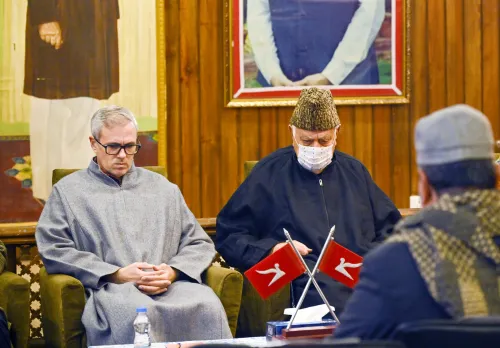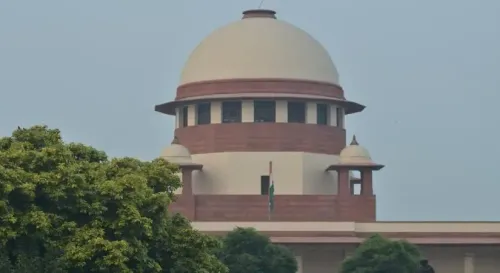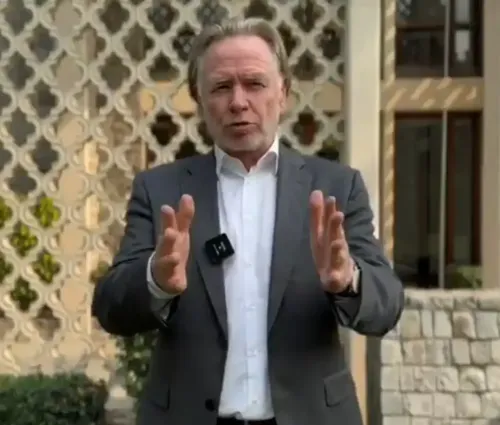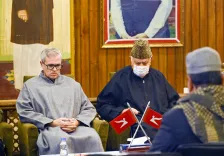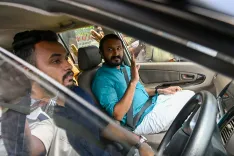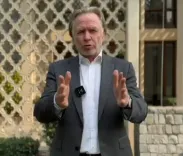Is Social Media the Latest Form of Terrorism?
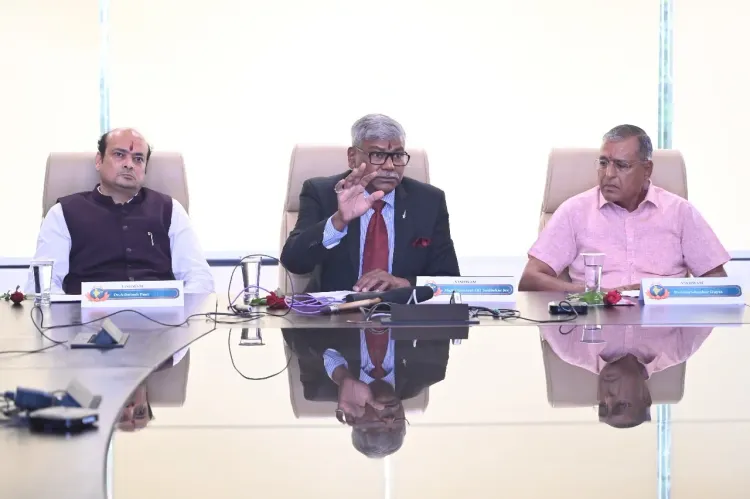
Synopsis
Key Takeaways
- Social media is increasingly being utilized as a tool for terrorism.
- A national strategy is essential to counteract digital brainwashing.
- Unified education can help combat radical ideologies.
- Cognitive warfare poses a significant threat to the youth.
- Implementing the Uniform Civil Code is crucial for societal unity.
Jaipur, June 28 (NationPress) A stimulating dialogue centered on the 'Role of Society in Combating Terrorism' took place on Saturday at the Constitution Club in Jaipur, organized by the Global Dialogue Forum 'Vishwam'.
The session featured notable figures such as Major General Sudhakar, former diplomat Gauri Shankar Gupta, and thinker Ashutosh Pant, who raised alarm over the issues of radicalization and the escalating threat posed by digital terrorism.
Major General Sudhakar cautioned that social media has evolved into a potent instrument for terrorism, enabling cognitive warfare—a psychological struggle designed to mislead and exploit vulnerable young minds.
He highlighted the pressing necessity for a national strategy to counteract digital indoctrination, warning that if extremist ideas remain unchallenged, they will fundamentally alter societal values.
Major General Sudhakar proclaimed that “social media is swiftly turning into a new form of terrorism.”
He elaborated that cognitive warfare, or psychological warfare, is being deployed to deceive the youth mentally. He asserted that if we fail to confront the false and extremist narratives, they will reshape our identities. He urged for the development of a national strategy to combat digital indoctrination.
Former diplomat Gauri Shankar Gupta advocated for a cohesive education system throughout India to maintain social harmony. He argued that fragmented educational systems foster division and undermine the collective resistance against radical ideologies.
He also endorsed the prompt enactment of the Uniform Civil Code (UCC) to establish a consistent legal framework for all citizens.
Gupta emphasized the necessity of uniting society against terrorism and supported the implementation of a uniform education system nationwide, asserting that diverse educational frameworks threaten social unity.
Ashutosh Pant underscored the significance of nurturing an informed, value-oriented society, asserting that effective measures against terrorism can only be achieved when citizens are morally and intellectually engaged.
Forum founders Vikrant Singh and Murari Gupta reiterated the event's aim, which is to confront urgent societal issues and devise a tangible action plan.

